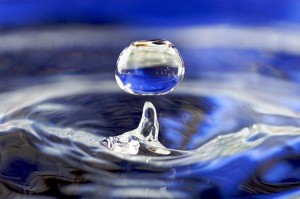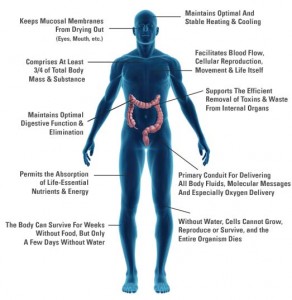Humans have long had an ancient connection to water ever since our evolutionary forebears emerged from the sea to live on the land. Two-thirds of our body is composed of this life-giving liquid and everyone seems to know how beneficial water is for the human body. This is doubly true for athletes or any person who engages in sports training.
Water has a number of vital functions in the human body, keeping the metabolism working properly and helping dissolve substances (sugar and salt) so that they can be carried around the human body. Water also helps with a clean colon, improving the body’s regularity. Any aid to digestion will prove beneficial to training athletes. A strict and nutritious diet is encouraged for sportspeople. Water is vital for fully reaping the rewards of a good diet.
Why Water is Important
Sportspeople tend to break a sweat more than average. It is important to be well-hydrated as sweat helps regulate the temperature of the body avoiding overheating. Water helps cushion and lubricate the joints providing extra protection during high-impact sports like running and jogging.
One affliction that athletes are particularly susceptible to is dehydration. Extended periods of exercise without a break increase the risk of this. Excessive sweating, especially in a hot climate, is a major cause of dehydration. It is worth having a supply of rehydration salts handy to replenish lost sodium in sweat.
To avoid dehydration and stay at your athletic peak it is worth taking a few tips on board. Keep well-hydrated before, during and after exercising. Take into account that you will need more water when the weather is hotter. Introduce water-high foods into your diet, such as watermelons, cucumbers and carrots. These also help with nutrition and regularity.
Why Water Is Important vs Other Liquids
It is important to remember that dehydration is not just the body’s lack of water, but also a depletion of vital sugars, salts and minerals. Try drinking a sports drink that contains carbohydrates, this should rehydrate as well as prevent fatigue. It is best to avoid diuretics, such as coffee, tea and carbonated drinks. These ultimately provide little nutritional value and tend to make the body leach valuable nutrients and fluids.
Too Much Water Can Have A Negative Effect | Why Water Is Important
Another caveat is to avoid swamping the body with too much water. This can overwhelm the kidneys and sometimes even cause exercise-induced hyponatremia, a disturbance in the body’s electrolytes, which can cause much the same symptoms as dehydration itself. Try the ‘sweat test’ , weigh yourself before and after an hour’s workout session to figure out how much water you’ve lost. Then remember to replenish that amount (and some more) during your regular workouts.
For the onset of dehydration take some rehydration salts, you can buy the sachets from any pharmacy. Remember, however, that prevention is better than cure and it is worth always keeping well-hydrated, through your water, food and sports-drink intake.
About GFTL’s Guest Blogger: Written in association with Man and Muscle, experts in all things sports nutrition. www.manandmuscle.co.uk is an e-commerce site offering the lowest prices for gold standard protein.

[box type=”note” style=”rounded” border=”full” icon=”none”]I love Comments and Feedback…Please share your stories, fitness goals, and questions with us below in the comment section.[/box]
Live Passionately,

[related_posts limit=”5″]


